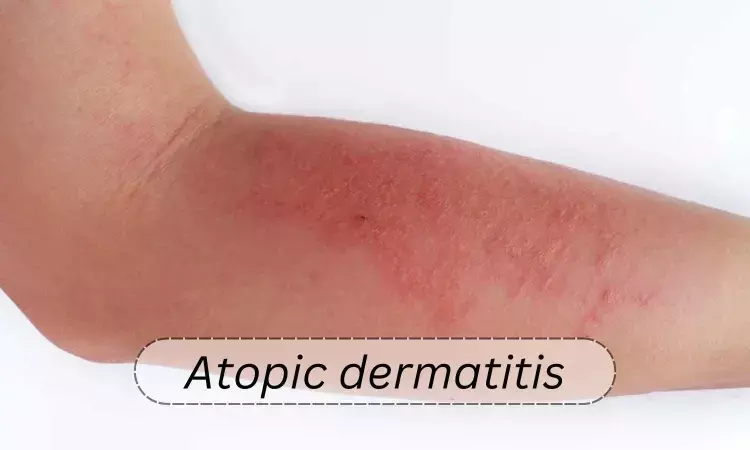- Home
- Medical news & Guidelines
- Anesthesiology
- Cardiology and CTVS
- Critical Care
- Dentistry
- Dermatology
- Diabetes and Endocrinology
- ENT
- Gastroenterology
- Medicine
- Nephrology
- Neurology
- Obstretics-Gynaecology
- Oncology
- Ophthalmology
- Orthopaedics
- Pediatrics-Neonatology
- Psychiatry
- Pulmonology
- Radiology
- Surgery
- Urology
- Laboratory Medicine
- Diet
- Nursing
- Paramedical
- Physiotherapy
- Health news
- Fact Check
- Bone Health Fact Check
- Brain Health Fact Check
- Cancer Related Fact Check
- Child Care Fact Check
- Dental and oral health fact check
- Diabetes and metabolic health fact check
- Diet and Nutrition Fact Check
- Eye and ENT Care Fact Check
- Fitness fact check
- Gut health fact check
- Heart health fact check
- Kidney health fact check
- Medical education fact check
- Men's health fact check
- Respiratory fact check
- Skin and hair care fact check
- Vaccine and Immunization fact check
- Women's health fact check
- AYUSH
- State News
- Andaman and Nicobar Islands
- Andhra Pradesh
- Arunachal Pradesh
- Assam
- Bihar
- Chandigarh
- Chattisgarh
- Dadra and Nagar Haveli
- Daman and Diu
- Delhi
- Goa
- Gujarat
- Haryana
- Himachal Pradesh
- Jammu & Kashmir
- Jharkhand
- Karnataka
- Kerala
- Ladakh
- Lakshadweep
- Madhya Pradesh
- Maharashtra
- Manipur
- Meghalaya
- Mizoram
- Nagaland
- Odisha
- Puducherry
- Punjab
- Rajasthan
- Sikkim
- Tamil Nadu
- Telangana
- Tripura
- Uttar Pradesh
- Uttrakhand
- West Bengal
- Medical Education
- Industry
Venous Thromboembolism Risk Lower among Patients with atopic dermatitis

Venous thromboembolism risk is lower among atopic dermatitis patients versus other immune-mediated inflammatory diseases suggests a new study published in the Journal of the American Academy of Dermatology.
Certain immune-mediated inflammatory diseases (IMIDs) may increase patients’ risk for venous thromboembolisms (VTEs), yet how atopic dermatitis (AD) influences VTE risk remains unclear. Describe venous thromboembolism incidence in patients with atopic dermatitis compared with other IMIDs and unaffected, atopic dermatitis-matched controls. This retrospective, observational, comparative cohort study used Optum® Clinformatics® United States claims data (2010–2019) of adults with atopic dermatitis, rheumatoid arthritis (RA), Crohn’s disease (CD), ulcerative colitis (UC), psoriasis (PsO), psoriatic arthritis (PsA), or ankylosing spondylitis (AS). Unaffected control patients were matched 1:1 with patients with atopic dermatitis. Results: Of 2,061,222 patients with IMIDs, 1,098,633 had atopic dermatitis. Patients with atopic dermatitis had a higher venous thromboembolism incidence (95% CI) than unaffected, atopic dermatitis-matched controls. However, when controlling for baseline VTE risk factors, atopic dermatitis was not associated with increased venous thromboembolism risk. Venous thromboembolism risk was lower in patients with atopic dermatitis versus RA, UC, CD, AS, or PsA; venous thromboembolism risk was similar in patients with psoriasis. atopic dermatitis did not increase venous thromboembolism risk when accounting for underlying risk factors. Atopic dermatitis was associated with lower venous thromboembolism risk compared with several rheumatologic and gastrointestinal IMIDs.
(https://www.sciencedirect.com/science/article/pii/S019096222303400X)
Dr. Shravani Dali has completed her BDS from Pravara institute of medical sciences, loni. Following which she extensively worked in the healthcare sector for 2+ years. She has been actively involved in writing blogs in field of health and wellness. Currently she is pursuing her Masters of public health-health administration from Tata institute of social sciences. She can be contacted at editorial@medicaldialogues.in.
Dr Kamal Kant Kohli-MBBS, DTCD- a chest specialist with more than 30 years of practice and a flair for writing clinical articles, Dr Kamal Kant Kohli joined Medical Dialogues as a Chief Editor of Medical News. Besides writing articles, as an editor, he proofreads and verifies all the medical content published on Medical Dialogues including those coming from journals, studies,medical conferences,guidelines etc. Email: drkohli@medicaldialogues.in. Contact no. 011-43720751


